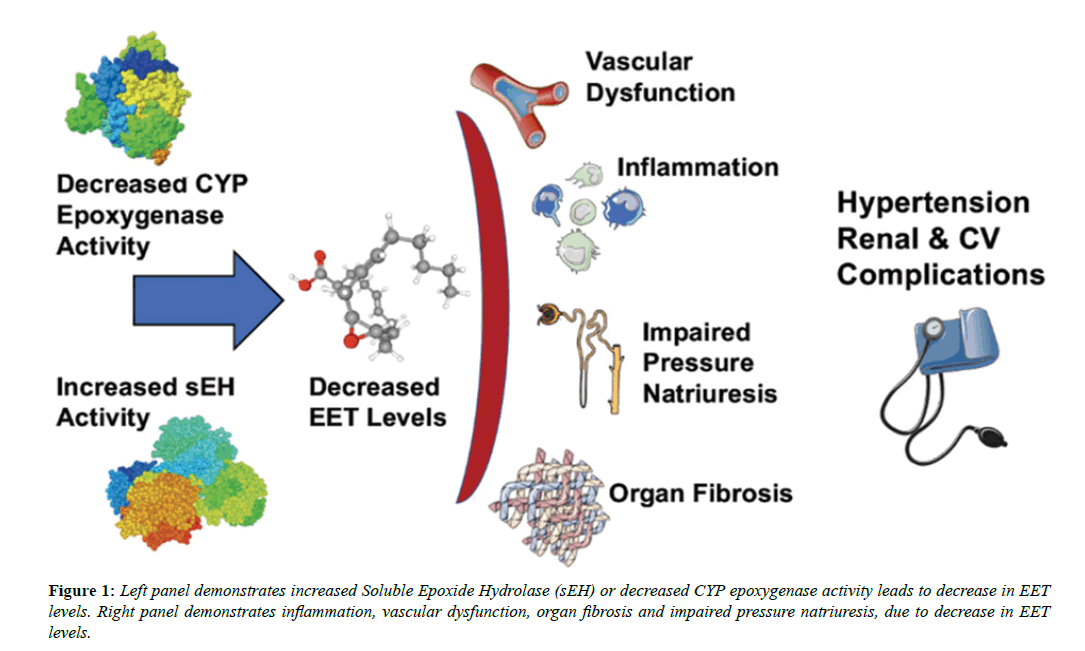Image Article - Annals of Cardiovascular and Thoracic Surgery (2020) Volume 3, Issue 3
Kidney function, Epoxyeicosanoids and Hypertension
Hazel Green*
Allied Academies, 40 Bloomsbury Way, Lower Ground Floor, London, United Kingdom
- *Corresponding Author:
- Hazel Green
Allied Academies
London, United Kingdom
E-mail: info@alliedacademies.org
Accepted: December 06, 2020
Abstract
Decreased Epoxyeicosatrienoic acid (EET) levels result in hyper-tension, renal and cardiovascular (CV) complications. A decrease in renal epoxygenase activity has been strongly linked to hypertension including salt-sensitive and angiotensin-dependent hypertension. These changes in kidney function, inflammation, vascular function, and fibrosis contribute to hypertension, renal and Cardiovascular (CV) disease progression. Angiotensin-dependent hypertension is also associated with increase in renal soluble Epoxide Hydrolase (sHE) protein expression. Again, an inability to upregulate CYP2C epoxygenases in response to a high-salt diet leads to impaired salt-sensitive and sodium excretion hypertension.Description
Decreased Epoxyeicosatrienoic acid (EET) levels result in hypertension, renal and Cardiovascular (CV) complications. A decrease in renal epoxygenase activity has been strongly linked to hypertension including salt-sensitive and angiotensin-dependent hypertension. These changes in kidney function, inflammation, vascular function, and fibrosis contribute to hypertension, renal and Cardiovascular (CV) disease progression. Angiotensindependent hypertension is also associated with an increase in renal soluble Epoxide Hydrolase (sHE) protein expression. Again, an inability to upregulate CYP2C epoxygenases in response to a high-salt diet leads to impaired salt-sensitive and sodium excretion hypertension.
EETs act to dilate preglomerular afferent arterioles and inhibit Epithelial Sodium Channels (ENaC). Decreased EET levels in hypertension lead to excessive salt absorption, afferent arteriolar constriction, and enhanced ENaC activity. Increased ENaC activity in angiotensin-dependent hypertension also contributes the sodium retention and increase in blood pressure. Saltsensitive hypertension occurs when the kidney and vascular CYP2C23 and CYP2C11 fail to increase in response to a highsalt diet.
*Correspondence to:
Hazel Green
Allied Academies
40 Bloomsbury Way
London, United Kingdom
E-mail: green01hazel96@gmail.com
